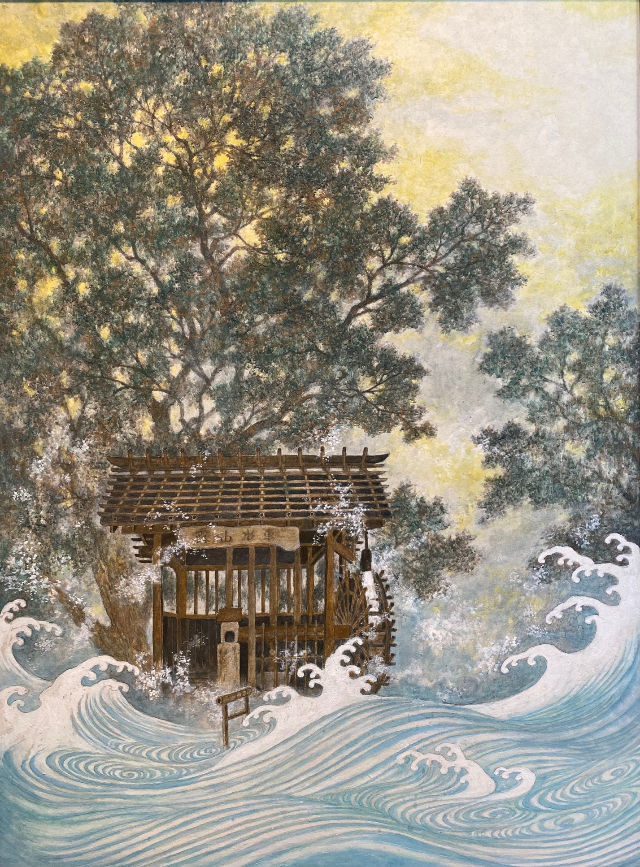HOW IRONICAL IS THAT?
- Rebecca Otowa
- May 1, 2024
- 5 min read

Recently some things about life in general have struck me as funny because they are so ironical. See what you think.
1) There is an app for finding things that you can get for your smartphone, which involves putting a “patch” tracking device on the object (or person, or, I suppose, pet) so that the phone app can read where it is. Unfortunately, this is no good for the item that is most important and also most mislaid these days – the phone itself. I realize that some people have multiple phones – don’t even get me started on the irony of that.
My husband recently left his phone in a restaurant and only noticed it when we were on the train going home. Of course, he got off the train at the very next stop and went back. The restaurant staff was very apologetic for not noticing the phone on the table sooner. Even if my husband had had this app, it wouldn’t have done him a particle of good.
2) I have had occasion before to point out that the person (the announcement in the sky, not a recorded message but the actual conductor) on trains exhorting people to be quiet is the person making the most noise. There are many variations on this theme. This is the height of irony to me.
3) Is this next one simply human nature or supremely ironical? One never sees a sign or hears an announcement about something until it has become a huge problem. I have noticed this in Japan, but it may also be apparent in other countries. For example, it was only when there were all kinds of accidents to people on train platforms who were distracted because they were looking at their phones that announcements saying “Be careful of walking and looking at your phone at the same time, as it’s very dangerous” began to be heard. In many cases I have seen just how much an announcement, or a written sign, is paid attention to, by Japanese people as well as foreigners – i.e., none. It seems to be a rule that something is done (and even then I’m not talking about true action, only cosmetic things like announcements and signs) only when a problem has grown so great that it has become ridiculous.
4) Recently I went to a “free school” and was discussing with another teacher the fact that when I taught in the official system, I was not allowed to split the class and give the smarter and more motivated kids more work so that I could concentrate on the less motivated kids, who needed more individual attention. Instead, the smarter kids were expected to help the others. This is an example of minna issho (“Everyone the same”) which permeates school culture and in fact, the whole of Japanese society, at least the traditional one that I was educated in back in the 80s. But the irony is that in a society where everyone is expected to “be” (ie. act) the same, the ones who are ahead in some way are bored and restless, trying to curb themselves and hide their individuality; whereas the ones who are behind in some way are self-hating and constantly striving to keep up. No one is happy.
This blinding insight about Japanese society hit me quite hard. It is not only ironical, it is unbearably sad. My husband said that the people in the middle are the happiest, because they can relax into being neither ahead nor behind. But how many such people are there, really? Where is the “middle”? Most people I know of are scared of seken no me (the Eye of the World ie. the judgment of surrounding people). How can you be happy when you are fearful? And why fear those people anyway? They are only human, and if they are evil-minded toward you, what exactly can they do? The words of an elderly Scotsman, which I once read, come back to me. “Ye wouldna be so worrit aboot what people think o’ye if ye kenned how seldom they du.” It is even more painful for those who feel they couldn’t or can’t escape their place, except into suicide etc. I guess it is normal for those that don’t fit in in some way to blame themselves.
Unfortunately, for most of our lives we are all concerned very much with what other people think of us. For some it is a matter of life and death – if you are seen to be against the “regime”, whatever it is, you can be executed, removed in the middle of the night, or suffer any amount of other unpleasantness. For others, it is a social holdover from other, more difficult times (as in Japan, where I think that people still have some memory of the social tyranny accompanying WWII – there is still quite a lot of military “style” around in society even now). The irony occurs when we think that the people with so much hold over us are themselves afraid of someone or something higher up, as any kind of control implies a fear of loss of control, in society as well as in individuals. Even at the very top, people are afraid of losing their position, so they tighten the controls even further. This is ironical because, in the immortal words, “they put their pants on in the morning the same way we do”. In other words, they are human beings just like us. So where does the fear come in?
I have never been in a position where I genuinely feared another human being, so maybe my insights are not valid. I did spend a lot of years trying to fit into the rural society I belong to, and only recently have started to see that all my efforts were not only unnecessary, they precluded my being really accepted, if such a thing were even possible. Our family is regarded in the village as “stuck-up” – but no one actually says this, to our face, of course. And my Japanese social education was administered by a woman (my mother-in-law) who was not only “stuck-up” ie. proud of her ancestry, place in the village, etc., but ALSO afraid of the censure of the neighbors. So I got it all, and from someone who I’m sure would have qualified for therapy in some other society. I tried to do everything I was told, and of course I received conflicting instructions and bruised some feelings along the way, often through sheer nervousness. Now that I am older, I can see through these social machinations and also know when to uphold them for the sake of social peace etc. But that also is in transition… young people don’t expect this as much as before. Things are getting looser, but it’s too late for me.
It’s hard to be a foreigner in Japan – hard, also, to be expected to be a working member of a conservative family in a conservative rural society. And hardest of all to see all these ironies of social life and to keep one’s mouth shut about these insights, when necessary, for the sake of “others”.



At the very least, the train platform/cell phone issue led to your wonderful story based around it.